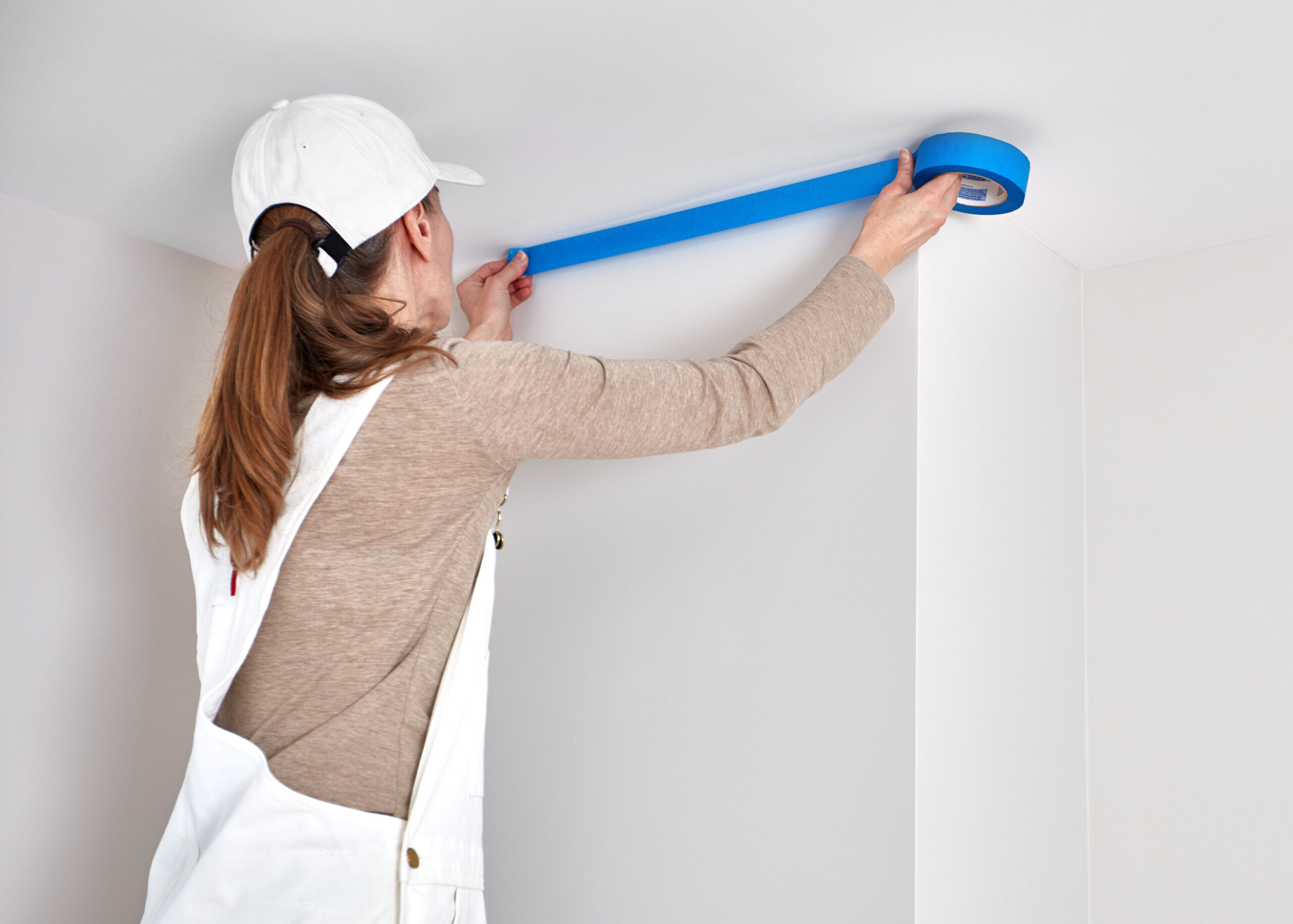Whether upgrading your kitchen, remodeling a bathroom, or revamping the backyard, one of the first decisions homeowners face is whether to take on the task themselves or hire a professional. The debate on whether to do it yourself or hire a professional shows distinct advantages and disadvantages for both. The right choice depends on your budget, timeline, skill level, and expectations for the final result.
In this blog post, we’ll explore the pros and cons of DIY vs professional home improvement, breaking down the critical factors—cost, time, quality, and safety—to help you make the best choice for your situation. We’ll also share insights and practical considerations that can guide you through this crucial decision-making process.
Understanding the Basics
Before diving into specifics, it’s essential to understand what DIY and professional home improvement typically involve.
DIY home improvement refers to any renovation, repair, or home upgrades you take on yourself without hiring a licensed contractor or technician. It can be as simple as painting a wall or as complex as installing new plumbing or rewiring electrical systems.
Professional home improvement, on the other hand, involves hiring licensed and experienced contractors or specialists to handle the project. These professionals often come with teams, equipment, and access to high-quality materials, and they are held to industry standards for safety and craftsmanship.
Cost: Saving or Spending?
DIY: The Budget-Friendly Option
One of the most compelling reasons homeowners choose to go the DIY route is cost savings. By eliminating labor expenses, you can dramatically reduce the overall budget for a project.
Pros:
- Lower upfront costs – No labor fees or professional markups.
- Flexibility in materials – You can shop around and choose cost-effective options.
- Opportunity to reuse and recycle – Many DIYers find creative ways to save by repurposing old materials.
Cons:
- Hidden expenses – Tool rentals, safety gear, and possible mistakes can add up.
- Higher long-term costs – Poor execution may lead to repairs or do-overs that negate initial savings.
Professional: More Expensive but Predictable
Hiring professionals often comes with a higher price tag, but it can also provide better value depending on the complexity of the project.
Pros:
- Accurate estimates – Most contractors offer fixed bids or detailed quotes.
- Fewer mistakes – Professionals are less likely to make costly errors.
- Warranties – Many offer guarantees on their work, providing long-term peace of mind.
Cons:
- Labor costs – Can be as much as 50% or more of your total project budget.
- Premium pricing – Professionals may have preferred vendors or suppliers with higher costs.
Time Commitment: Speed vs Flexibility
DIY: Work on Your Own Schedule
If you enjoy working on weekends or evenings, DIY projects can be a flexible way to manage your time.
Pros:
- No contractor scheduling – Start when you’re ready.
- Flexible pace – Take breaks or extend timelines based on your availability.
Cons:
- Slow progress – Balancing work, family, and a home project can stretch a one-week job into months.
- Learning curve – Research and trial-and-error can significantly increase your timeline.
Professional: Faster Turnaround
Contractors can complete most jobs in a fraction of the time it would take an amateur.
Pros:
- Dedicated crews – Professionals often work full-time until the job is done.
- Streamlined process – Experience, tools, and teamwork lead to efficiency.
Cons:
- Rigid timelines – Once you book a contractor, you need to be ready for them.
- Delays possible – Schedules may shift due to other clients, subcontractors, or supply issues.
Quality of Work: Skill and Expertise
DIY: Satisfaction and Personal Touch
Completing a home project yourself can be extremely satisfying and offers a personal stamp on your home.
Pros:
- Creative control – You’re the boss of design and execution.
- Pride in work – A finished DIY project can be deeply rewarding.
Cons:
- Inconsistent results – Unless you’re skilled, outcomes may fall short of expectations.
- Lack of experience – Some jobs require training or expertise to be done correctly.
Professional: Consistency and Compliance
With professionals, you get the benefit of experience and access to quality tools and materials.
Pros:
- High standards – Professionals follow codes and quality benchmarks.
- Specialized skills – From plumbing to tilework, experts deliver polished results.
Cons:
- Less personal customization – You may have to compromise on certain details.
- Risk of bad contractors – Not all professionals are equal; vetting is essential.
Safety: Risk Management
DIY: Learn and Proceed with Caution
Many homeowners underestimate the risks involved in DIY renovations.
Pros:
- Low-risk jobs are manageable – Painting, basic landscaping, or tiling are relatively safe.
- Opportunity to learn – You gain skills and knowledge with every project.
Cons:
- Injury risk – Power tools, heights, and electrical systems pose real dangers.
- Code violations – Mistakes may not only be unsafe but also illegal if they violate local building codes.
Professional: Built-In Safety and Insurance
Hiring licensed professionals shifts responsibility and risk away from the homeowner.
Pros:
- Safety training – Professionals are trained in workplace safety.
- Insurance coverage – Most contractors carry liability insurance in case something goes wrong.
Cons:
- Liability confusion – If the contractor isn’t properly insured, the homeowner could still be liable.
- Safety shortcuts – Less reputable professionals may cut corners to save time.
Complexity of the Project
Some projects are simply too complex for even the most enthusiastic DIYer.
DIY is more suitable for:
- Painting and wallpapering
- Installing shelves or cabinets
- Simple tiling or flooring
- Garden and outdoor home upgrades
Professional help is better for:
- Electrical work and rewiring
- Plumbing system changes
- Structural changes
- Roof replacements or major window installations
If a project requires permits, inspections, or specialist skills, it’s usually safer and smarter to go pro.
Long-Term Impact on Home Value
How your home improvements affect resale value is another vital consideration.
DIY projects can enhance your home’s look and feel, but only if done well. Poor workmanship can actually reduce the value or, worse, make your home harder to sell.
Professionally completed renovations, especially those with permits and warranties, are more likely to appeal to buyers and pass inspections.
Whether it’s a kitchen renovation or bathroom upgrade, consider how each decision affects not only your current enjoyment of the home but its future worth.
Decision-Making Guide: When to DIY and When to Hire a Pro
Use the following checklist to help decide between DIY and professional home improvement:
Choose DIY if:
- You have the tools and skills for the job.
- The project is cosmetic or low-risk.
- You’re okay with learning as you go.
- You have time to spare.
- Cost savings are a top priority.
Hire a pro if:
- The project involves plumbing, electrical, or structural changes.
- You’re short on time or patience.
- The work requires a permit or inspection.
- You want a guaranteed result with a warranty.
- Quality and safety are non-negotiable.
Blending Both Approaches
In many cases, the best solution is a hybrid approach. For example, you might handle demolition and painting yourself but bring in professionals for cabinet installation or electrical work. This lets you save on labor while ensuring the more complex aspects are done right.
It’s all about knowing your limits and being strategic. Start small, assess your comfort level, and be willing to call in help when needed.
Home Refurbishment Tips
Here are a few home refurbishment tips to keep in mind regardless of your chosen approach:
- Always plan ahead – Sketch a clear vision of your project, budget, and timeline.
- Invest in quality materials – Whether DIY or pro, good materials make a difference.
- Know your local codes – Even small jobs may need permits or inspections.
- Take before-and-after photos – Track progress and enjoy the transformation.
Find What Works For You
There’s no universal answer in the DIY vs professional home improvement debate. Both approaches can lead to beautiful, functional upgrades—when chosen wisely. The key is to be honest about your abilities, assess the risks, and consider the bigger picture, including time, money, and the value of your home.
It’s also worth noting that every project can be a learning opportunity. Even if you choose to hire professionals, being involved in the planning and design phases allows you to understand the process better for future improvements. Likewise, starting with small DIY tasks can build your confidence and skills over time.
Deciding between DIY vs professional home improvement is about balancing time, money, safety, and results. By understanding the strengths and weaknesses of each option, you’ll be better equipped to transform your living space into something truly special—on your terms.
Before starting any project, take time to do your research, read reviews, get quotes, and consider how each choice aligns with your goals. Sometimes, the peace of mind that comes with professional help is worth every penny. Other times, the satisfaction of building something with your own hands is priceless.
Your home should reflect who you are. Whether brushing on a fresh coat of paint or overseeing a major remodel, thoughtful planning and a realistic understanding of your capabilities will lead to results you can be proud of.
Royal Roots Enterprises is a sales and marketing agency redefining business solutions for home improvement brands. With a solid foundation in traditional marketing strategies, we blend time-proven techniques with contemporary market insights to deliver outstanding results. Contact us to learn more about our services and how we can help you.


